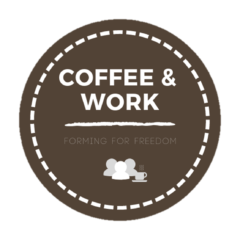In 2017, the World Economic Forum, an organization devoted to international cooperation between public and private funds, got started to the project “Preparing for the Future of Work.

Since then, various articles and videos have been prepared to support societies in conducting the discussion on this topic, the future of work, which has been constantly nominated, although we do not have a real dimension of its implications.
According to WFM, the main subjects on this issue can be defined in three big themes:
Technology
accelerated production of resources that aim to improve tasks performed, with or without, technological intervention, in very different ways than these that we’re experiencing nowadays;
Globalization
Demographic and geopolitics transformations
Skills
That should be rethanked and well developed, what means relocate people considering that humans and machines will share the same workspace intensively (much more than today, when we need lots of technological devices, as smartphones or computers).
For sure, at the macrolevel, these three big themes are fundamentals to define the processes of social constitution and development. These dimensions converge with the position taken by the Forum over this discussion, as “a provider of a neutral platform that aims to encourage public and private agents [that we can read as organizations], as well as intra and inter-industry collaboration, to promote an efficient adaptation to the Future of Work”.
So, maybe we should ask:
Are we talking about work or jobs?
This question may echo in the different directions, which are debated and understood by the discussions carried out by the Forum, and by other social actors, as news agencies, academics, in daily life, through highly emotive opinions, based on deprecatory or exalting arguments.
This introduction aims to present to the reader our source of inspiration on the text These are the 10 most in-demand skills of 2019, according to LinkedIn produced by the writer Emma Charlton, and published in the Forum’s portal at January, 14 2019. This list of skills was shared in first day of 2019, by Paul Petrone at LinkedIn’s educational page. To get to the numbers that it presents, LinkedIn probably used data from the its own network, especially those from the profiles of people being hired at that time. We also should assume that some algorithms may help in this hunting, but this is not clear, so it’s just a guess.
So, if you not got access to this list yet, you’re probably a little bit angry with me because I’m taking all this time to follow to my point. But, it’s time: let’s get the list with the 10 most required skills for 2019. The list is divided in two parts: the soft and hard skills.
Soft Skills [five at all] depends basically from individuals and are related to behaviors and individual choices. They are: creativity, persuasion, collaboration, adaptability and time management.
The Hard Skills, at it’s turn, aggregate 25 skills, in the macro and technological levels. In some dimensions, we can say that they result from the “soft” skills. Let’s cite only the first five: cloud computing, artificial intelligence, analytical reasoning, people management, design inspired by user experience.
What’s your first impression reading this list?
I will tell you mine, based on my trajectory as a worker and researcher on the subject. However, as in everything in life, we do not have an absolute answer, which is excellent! It is in the diversity of points of view that we can enrich our experience and transform the ways we live our lives in whatever way: family, work, school / college, etc..
Hard Skills, or technical skills, actually involve at least two developmental strands: on the one hand, they are technologies that are improved on a daily practices coming from different fields. On the other hand, they refer to a set of behavioral knowledges and skills, that both, gave rise to and give continuity to, its structuring. We see, then, that so-called technical skills, as mentioned by the LinkedIn study, do not consider these two strands, but how they impose themselves on individuals’work.
In this case, although we speak about a change of mentality to prepare ourselves for the challenges that technologies are adding to the work process, we maintain the same focus of imposing the whole on the individual. But can we still conceive of a world where individuals are masses that can be molded by default, without self-will or decision? Are we, in fact, just “adapting” ourselves to the future? Are we just adapting or would we be protagonists in this movement? To what extent do we see local protagonists who choose, or not, to put themselves as global gears? And the most important:
Are we really interested in taking responsibility of all our actions, our choices in this context?
At this point, soft skills, or behavioral skills, are crucial because they are in the realm of our choices. But does our daily action contemplate only five skills? If we consider those two other strands, I believe that these five skills, however complex, are still superficial to understand the human universe.
So, to keep our thinking in the scope proposed by the LinkedIn study, do we understand what those five soft skills mean? Other questions that we maybe would do: what do we mean by collaboration? And for creativity? By adaptability?
In my point of view, we do not seek to understand these abilities as a result of the values that underpin our behaviors, but we see them as “things” that we can buy. Who has never been tempted by that kind of book or course: “Be creative in 10 lessons” or “Learn to persuade people to get what you want”. In both cases, creativity and persuasion are mere optional that we can include in our list of skills. Unfortunately, it’s a little bit harder.
Of course, there are courses, formations of various styles, that can stimulate our understanding of creativity, understand the engines of our thinking and behavior in the process of creating a creative solution. But the success of this process must go beyond situated utility: this process implies learning of oneself and the other. If we think of learning from a functional perspective, as soon as learning fades away, we lose our enthusiasm for activity and fall into the old sentence: “I am not creative. I’ve tried and I can’t”.
Well, but getting back to the text of LinkedIn and taken back by the Forum, we can see the difficulty in dealing with soft skills in the way they are exemplified and mentioned. Do simple phrases contribute to our understanding or culminate in creating a tense climate of doubt? Let’s cite the example of the most requested skill for individuals for the year 2019, creativity:
“While robots are great at optimizing old ideas, organizations need creative employees who can devise solutions tomorrow”. (LinkedIn)
What does this phrase mean to you? I could ask innumerable questions about it for you, such as: Are we designing organizations like 10 years ago? Or, do the generations Y and Z [and even X] accept to be defined as “tools” in the hands of organizations? Are we just “selling” ideas as if they were shoes? We create an “aura” around the robot, as if it were an entity and we accept our tooling position. In terms of organizational emergencies, we see that startups, for example, have developed in environments distinct from large corporations. We have coworking as a maturing organizational arrangement in the various corners of the globe.
But the main question: can you explain what creativity is from this supporting text proposed by LinkedIn? I do not. And despite all the courses indicated in the subject, I think that if we are not able to explain clearly and directly an idea, then we do not have sufficient preparation to understand denser aspects.
So before we intensify our energies by learning about artificial intelligence or cloud computing, would not it be important to consider such soft skills? Have you ever stopped to think that you may be having trouble understanding something technical simply because you do not know what’s your learning process or how your intellectual / behavioral development are like?
Think about it and see you!

This section is dedicated to sharing news about the world of work, to follow the advances in the investigations that we are developing, besides the difusion of events and other informations!
If you have content to share, feel free to contact us!
